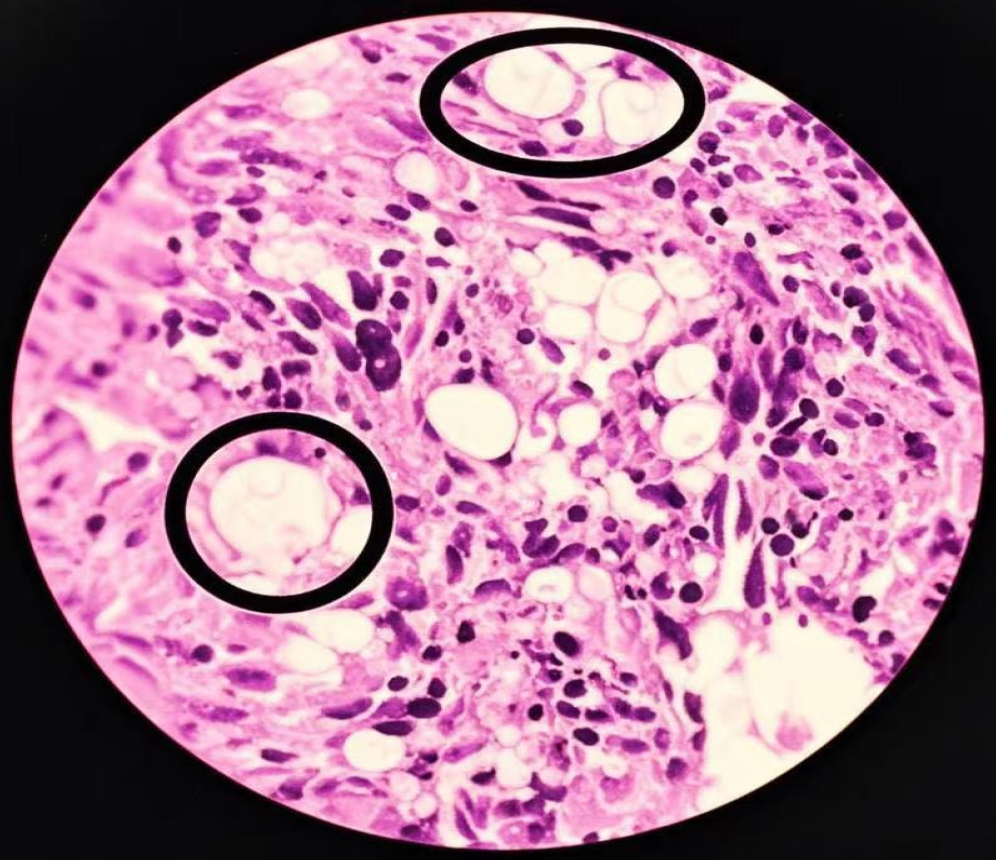Copyright
©The Author(s) 2025.
World J Clin Cases. Jul 16, 2025; 13(20): 105133
Published online Jul 16, 2025. doi: 10.12998/wjcc.v13.i20.105133
Published online Jul 16, 2025. doi: 10.12998/wjcc.v13.i20.105133
Figure 2 Histopathological features of the left lung mass (hematoxylin and eosin stain; × 400).
Large “titan cell” pathogens are evident (circles) with budding of smaller pathogens surrounded by transparent halos. These are accompanied by monocyte-macrophage infiltration with fibrosis, necrosis and granuloma formation. Under low magnification, the lung tissue shows chronic inflammatory changes, and granulomatous nodules formed by the aggregation of histiocytes. Epithelioid cells and multinucleated giant cells are observed, accompanied by fibrous tissue hyperplasia and lymphocyte infiltration. Under high magnification, round and translucent bodies can be seen in the alveolar cavity and multinucleated giant cells. The centers of these bodies are lightly stained, with thin walls, and a clear halo can be seen around them. Combined with the results of special staining, it is consistent with cryptococcus infection.
- Citation: Gao CY, Yang XJ, Guo E, Zheng YL. Invasive pulmonary cryptococcosis mimicking metastatic lung cancer: A case report and review of literature. World J Clin Cases 2025; 13(20): 105133
- URL: https://www.wjgnet.com/2307-8960/full/v13/i20/105133.htm
- DOI: https://dx.doi.org/10.12998/wjcc.v13.i20.105133









